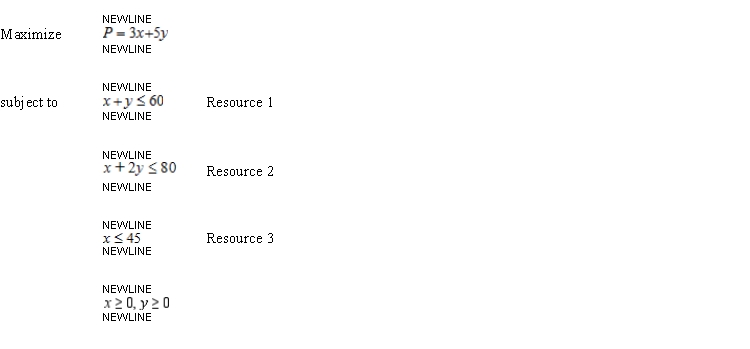Use the method of corners to solve the problem. Find the range of values that the coefficient of x can assume without changing the optimal solution.
Find the range of values that requirement 1 can assume.
Find the shadow price for requirement 1.
Identify the binding and nonbinding constraints. 
A) x = 40, y = 20, P = 220 
 1
1
The first two constraints are binding; the third is nonbinding.
B) x = 40, y = 20, P = 230 
 1
1
The first two constraints are binding; the third is nonbinding.
C) x = 40, y = 20, P = 220 
 2
2
The first two constraints are binding; the third is nonbinding.
D) x = 20, y = 40, P = 220 
 1
1
The first two constraints are binding; the third is nonbinding.
Correct Answer:
Verified
Q182: National Business Machines manufactures two models of
Q183: Kane Manufacturing has a division that produces
Q184: Kane Manufacturing has a division that produces
Q185: Kane Manufacturing has a division that produces
Q186: Solve the following linear programming problem by
Q188: Use the method of corners to solve
Q189: Soundex produces two models of clock radios.
Q190: Perth Mining Company operates two mines for
Q191: You are given a linear programming problem.
Q192: Consider the production problem: One company wishes
Unlock this Answer For Free Now!
View this answer and more for free by performing one of the following actions

Scan the QR code to install the App and get 2 free unlocks

Unlock quizzes for free by uploading documents